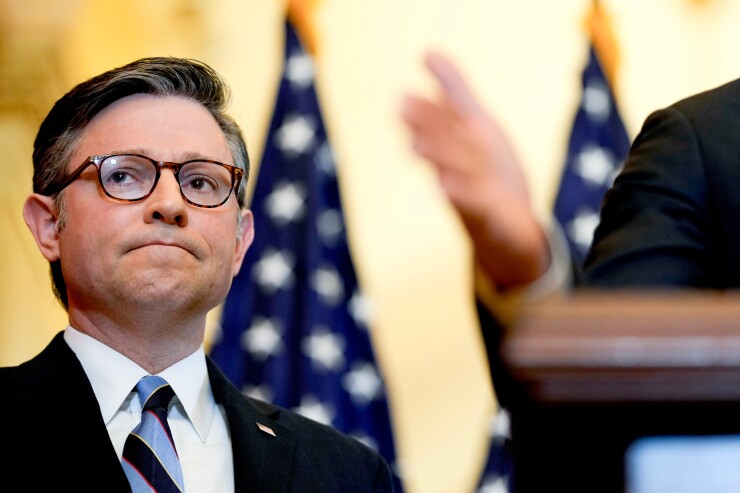
The House Ways and Means Committee Wednesday morning advanced a nearly 400-page tax package along party lines, keeping the credit union industry's federal tax exemption untouched — for now.
The legislation bundles various policies, including President Trump's economic and tax goals and now heads to the House Rules Committee.
While the exemption was preserved in the current draft, the fact that some Republicans floated eliminating it as a potential offset to fund other provisions means the idea could be revived. As negotiations continue — including debate on changes to the state and local tax deduction cap — the credit union exemption could return as a bargaining chip in the final stretch.
Following the committee's vote, U.S. Treasury Secretary Scott Bessent praised the bill — which would make the 2017 Trump tax cuts permanent — in a statement.
"Today, House Republicans continued strong progress toward enacting President Trump's economic agenda and preventing historic tax hikes on families and businesses," said Secretary Bessent. "The President's plan for prosperity is in full swing as a unified Republican Party works to drive economic growth while lowering costs from coast to coast."
The committee-approved text now heads to the House Rules Committee, after which it may move to the House floor for debate and a final vote. House Speaker Mike Johnson, R-La., has indicated leadership could finalize an agreement on the bill as early as Wednesday.
Many in the credit union industry have feared their federal tax exemption could be on the chopping block, as House Republicans
While the measure did not appear in the most recent draft, the exemption's appearance as a possible spending offset suggests the idea is
Credit unions currently enjoy an exemption from federal corporate income taxes, a status that industry advocates argue enables them to serve underserved communities, offer lower rates and return value to members. In recent years, America's Credit Unions — the main credit union advocacy group in Washington — and other industry partners have launched an aggressive lobbying campaign, sending
While credit unions are established as nonprofit, community-focused institutions providing low-cost financial services, some of the largest credit unions have expanded their scope significantly. Critics — including many bank industry competitors like the Independent Community Bankers of America —
America's Credit Unions CEO Jim Nussle has expressed confidence that the coalition has persuaded enough lawmakers to block any last-minute amendments targeting credit unions but cautioned that backroom negotiations near the end of the process — especially during final House-Senate reconciliation — remain a risk. While the sector successfully avoided inclusion in the current House bill, Nussle argued the fight to protect credit union tax exemption will continue and urged credit unions to continue to advocate with lawmakers. The next step, he noted in a Wednesday call, is the full House vote — expected by Memorial Day — followed by Senate consideration.
"We feel pretty good about [the path forward] right now, but we have to continue to maintain a 'stay out' strategy," Nussle said. "There is almost invariably a meeting nowadays at the end of a big bill like this, a big reconciliation bill like this, where the leader of the Senate, John Thune [R-S.D.], and Mike Johnson — the speaker of the House — are going to get together with maybe a few leaders, and they're going to say, 'how are we going to get this bill across both our floors?' That last mile, those last few moments, are going to be pivotal as well, so we're not going to let up."






